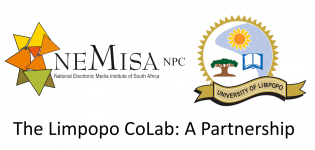This is a Cognitive Class - by the IBM MOOC platform.
- Facilitator: Mashegoane Zachariah Boshielo
- Facilitator: Lesedi Maite Faith Modiba

This is a Cognitive Class - by the IBM MOOC platform.
Basic Digital Literacy course offered by CoLabs in response to mandate
received from NEMISA, a state-owned entity in the Department of
Communications and Digital Technologies, South Africa,
2. STEP S INTRODUCTION
2.1 BACKGROUND OF THE TRAINING
Action is the way to success in the domain of entrepreneurship. Whether the entrepreneur purchases goods, attracts customers by doing marketing or sets goals that allow him or her to plan the following business processes, the business success always depends on becoming active. This is also the reason why STEP S is based on action. Instead of passively listening to the trainer, the participants become active themselves from the first session. Past research has shown that our action-oriented approach significantly impacts the founding and success rate of student entrepreneurs and thus contributes to poverty alleviation and job creation.
STEP S seeks to prepare students to become responsible entrepreneurs. It is therefore crucial that they do not just take any action, but act responsibly, which enables them to create a positive impact for others and/or the environment with their business. The central goals of the training are therefore to change entrepreneurial as well as sustainability-oriented thinking and subsequently consequently also the entrepreneurial actions of the participants.
The curriculum includes content on business, psychological, and entrepreneurial skills. Moreover, sustainability is included as a cross-cutting theme. Our teaching approach emphasizes scientific knowledge to be combined with action knowledge. We translate scientific findings into action principles to provide students with “how to do”-knowledge that maximizes their chance of successfully starting and running a business. This approach differs from more traditional academic approaches which have a stronger focus on theoretical than practical knowledge. The design of the course is to provide the opportunity to become active and to practice the principles of action for each step of the entrepreneurial process.